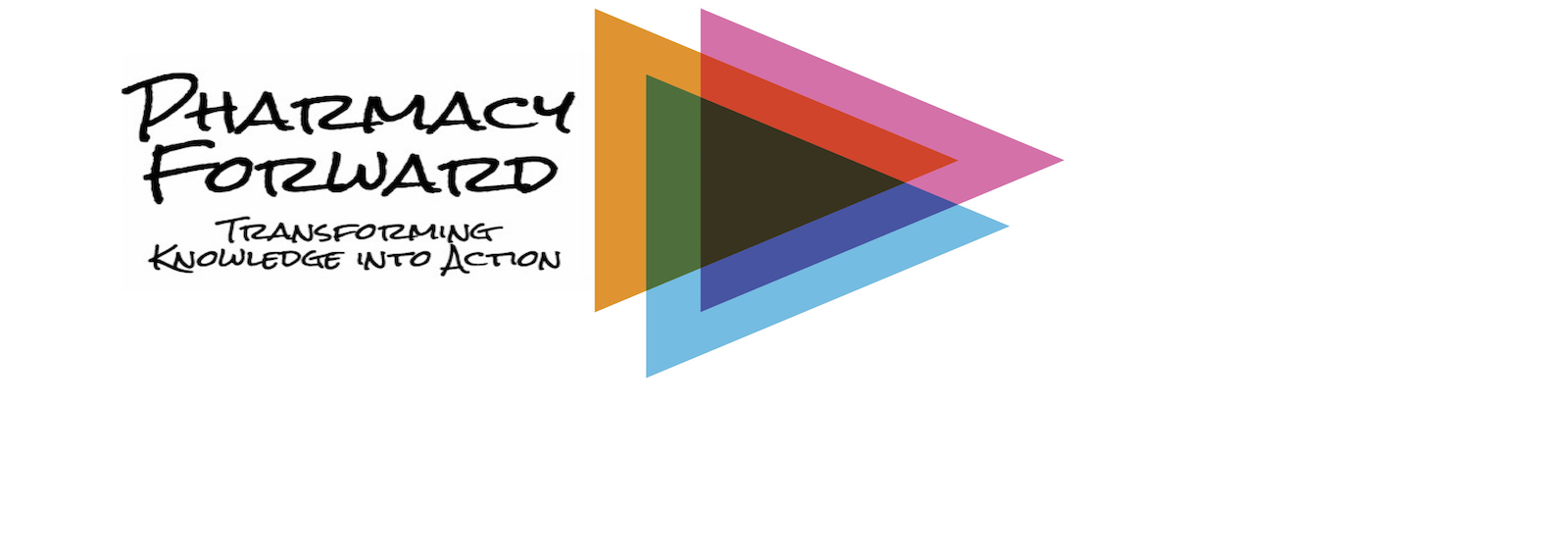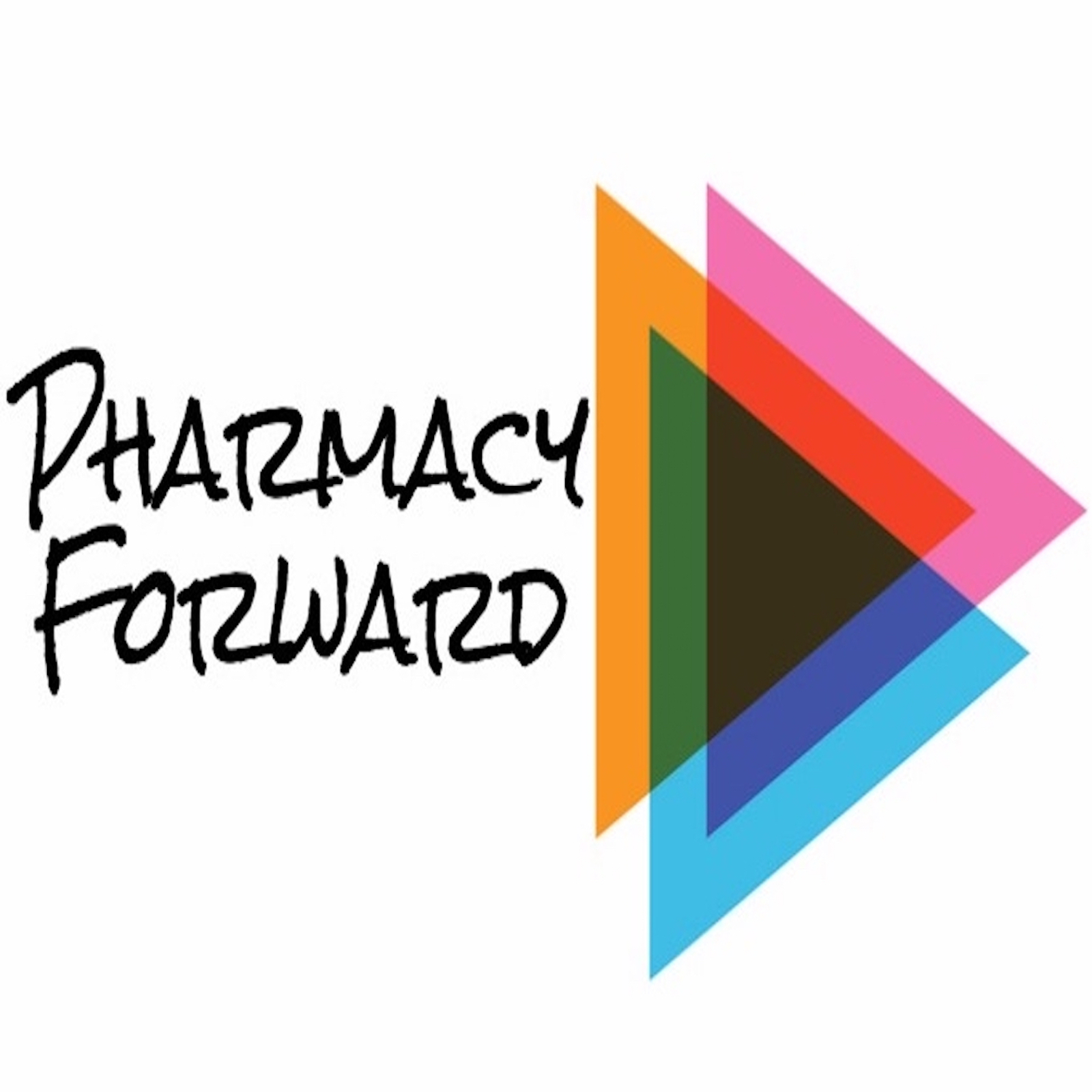Episodes

Tuesday Feb 15, 2022
Time for a Change? Approaching a Career Pivot with Confidence
Tuesday Feb 15, 2022
Tuesday Feb 15, 2022
Lucinda L. Maine, Ph.D., R.Ph. - Executive Vice President and Chief Executive Officer of the American Association of Colleges of Pharmacy - talks with us about how to manage major career changes and why a degree in pharmacy is so valuable.
Key Lessons:
- Career pivots can be welcomed and sought ... or arise from something unexpected and unwanted.
- Most professionals will experience several major career changes during their working years.
- A pharmacy degree enables a surprisingly broad range of career paths.
- Being prepared for new opportunities by continually updating your knowledge and skills is critical.
- Having the financial resources available to obtain additional education, training, or experience is an essential career insurance policy.
- Active engagement in professional pharmacy associations, at both the state and nation level, provides a great way to network and keep current with the latest trends.
- Many people, especially women, are reluctant to make a major career change without having "all the necessary" credentials and experiences. But consider what is essential ... you can learn the rest on the job.
- Several resources are available to help you explore the career options that align with your strengths, skills, and interests:
- Check out the American Pharmacists Association Career Pathway Evaluation Program and ADVANCE for continuing professional development
- AACP-APhA Pharmacy Opportunities Network (PharmON)

Tuesday Sep 14, 2021
Professional Identity Formation (Part 2)
Tuesday Sep 14, 2021
Tuesday Sep 14, 2021
Special Host Eric G. Boyce, PharmD - Professor of Pharmacy Practice, University of the Pacific Thomas J. Long School of Pharmacy - and Guests Alex N. Isaacs, PharmD, MS, BCPS - Clinical Associate Professor, Purdue University College of Pharmacy - and Sally A. Arif, PharmD, BCPS, BCCP - Associate Professor, Midwestern University College of Pharmacy, Downers Grove - talk with us about professional identity formation, people and events that influenced their professional identity, and the importance of reflection.
Key Lessons
- Our identities are who we are and aren't easily changed (but can and do evolved over time)
- Our lived experiences have a significant influence on our professional identity
- Role models and mentors play a critical role in our professional identity formation
- Emotional experiences have a powerful effect in shaping our beliefs and motivations
- Reflection and introspection can help us solidify and clarify our values and beliefs
- Developing a regular and ongoing reflective practice can help us think through challenges and plan for the future so that we are clear about our purpose and what aspire to be
For more information about professional identity formation, read the Report of the 2020-2021 AACP Student Affairs Committee: A Pathway to Professional Identity Formation

Tuesday Aug 17, 2021
Professional Identity Formation (Part 1)
Tuesday Aug 17, 2021
Tuesday Aug 17, 2021
Special Host Kristin Janke, PhD - Senior Associate to the Dean and Professor, University of Minnesota College of Pharmacy - and Special Guests Jessica L. Johnson, PharmD, BCPS - Associate Professor, William Carey School of Pharmacy - and Karen Kopacek, BPharm, MS - Associate Dean and Associate Professor, University of Wisconsin School of Pharmacy - talk with us about professional identity formation, how our identities are formed, and why they are important.
Key Lessons
- Our identities shape our sense of self ... which influence our values, beliefs, and actions
- All of us have multiple identities ... including a professional identity
- Professionalism and professional identity are related but distinct concepts
- Students and residents may feel uncomfortable or experience identity conflicts as they form their professional identity — assimilating the values and norms of the profession
- Our professional identities are developed through interactions with colleagues and mentors
- A strong professional identity can help counterbalance work stressors and negative emotions that lead to burnout
For more information about professional identity formation, read the Report of the 2020-2021 AACP Student Affairs Committee: A Pathway to Professional Identity Formation

Tuesday Jun 08, 2021
Accepted! Writing, Submitting, and Publishing Manuscripts in Journals
Tuesday Jun 08, 2021
Tuesday Jun 08, 2021
Alan J. Zillich, PharmD — William S. Bucke Professor and Head of the Department of Pharmacy Practice, Purdue University College of Pharmacy — talks with us about getting your work published; from identifying great ideas, collaborating, writing, and revising your manuscript.
Key Lessons:
- From review articles to meta-analyses, from case reports to observational studies and controlled trials, getting your work published is immensely gratifying. But it requires many months (and sometimes years) of effort.
- Working with a mentor who has experience producing scholarly work and getting published is a great first step.
- Good research questions arise from practice. When there are gaps in our knowledge, that's where a scholarly project that's potentially publishable often emerges.
- Working with an authoring team - bringing together people with different skills - can really improve the quality and rigor of your scholarly work.
- Use explicit criteria to determine who qualifies as an author on a paper. Be sure to acknowledge those who contributed but not meet the definition of author.
- Finding the "right" journal for your work is important. Each journal has a different audience and mission.
- Getting rejected is part of the process. The feedback from peer reviewers can be extremely helpful and you are one step closer to getting published.
- Beware of predatory journals (who don't provide a rigorous peer review but still charge high publication fees).
- Blocking time in your schedule to regularly engaging (at least weekly) in scholarly activities - researching and writing - is critical to success. Make an appointment with yourself. Unfortunately, this might require early mornings, evenings, or weekends if you can't negotiate the time into your workday.

Tuesday May 11, 2021
Finding a Meaningful Side Gig
Tuesday May 11, 2021
Tuesday May 11, 2021
Jessica Louie, PharmD, BCCCP — president of Clarify Simplify Align, the host of the Burnout Doctor podcast, and Associate Professor of Pharmacy Practice at West Coast University — talks to us about developing a meaningful side gig to reinvigorate your passions.
Key Lessons:
- Every career has ups and downs ... and health care professionals are prone to burnout. Burnout is a syndrome of emotional & physical exhaustion, cynicism about work, and a lack of a sense of personal accomplishment.
- Overcoming burnout takes time to address - examining your emotional, physical, and spiritual needs.
- Learning how to "own" your time and being intentional with your energy is critically important.
- Starting a small business can be very gratifying so long as the activity aligns with your core values and passions.
- The ten pillars of life can enhance one's sense of wellbeing. A meaningful side gig can enhance the sense of wellbeing by address several of the life pillars.
- Surround yourself with like-minded people who are interested in or who have successfully developed a side gig.
- Be mindful of the big transitions in life - to minimize stress, whenever possible, limit your attention to one major life event at a time.
- Starting a side gig will require a significant time commitment but you can manage it by using time blocking and simplifying.
You can download the Burnout Starter Kit to learn how to clarify, simplify, and align your life.

Wednesday Jun 03, 2020
Social Media to Make Professional Connections (I)
Wednesday Jun 03, 2020
Wednesday Jun 03, 2020
Dave L. Dixon, PharmD, BCACP, BCPS, CDE, CLS - Virginia Commonwealth University School of Pharmacy and - Brent N. Reed, PharmD, BCPS, BCCP - University of Maryland School of Pharmacy - talk with us about using social media for professional development and staying current with the latest evidence to support your practice.
Key Lessons:
- Social media includes a wide range of online applications intended to interact with other users in a public setting.
- Social media, especially Twitter, has become an increasingly important forum for connecting with professional colleagues and engaging in dialog about cutting edge issues that impact patient care and pharmacy practice.
- Social media use should be done in a systematic, thoughtful way - you need to decide what your goals are, who to follow, and how frequently to check your social media feeds.
- Being a passive recipient of social media posts (aka being a "lurker") is a great way to get started but eventually, you may wish to share and comment on content you find valuable ... as well as create your own original content.
- Learning how to curate your social media feed can help prevent information overload.
- Following a professional conference (and the people attending) on Twitter can enhance the conference experience and enable those who are not able to attend the conference to learn about what's happening.
- Engaging in social media can be personally and professionally rewarding. Share your personality! It should be fun.
Get the Social Media Infographic by Ashley and Brooke Barlow (@theABofPharmaC)

Wednesday Mar 13, 2019
Credentialing & Privileging (I)
Wednesday Mar 13, 2019
Wednesday Mar 13, 2019
Joseph Saseen, Pharm.D., BCPS, BCACP, CLS - Professor of Clinical Pharmacy and Family Medicine, University of Colorado Skaggs School of Pharmacy and Pharmaceutical Sciences - discusses the various credentials pharmacists can earn following graduation and licensure.
Key Lessons
- Credentials include degrees, licensure, post-graduate training, and board certification.
- Earning a certificate is not synonymous with becoming board certified.
- Board certification requires candidates to meet specific eligibility criteria and pass a comprehensive examination to validate the breadth and depth of knowledge in the area of specialization.
- Board certification can give pharmacists a competitive advantage for employment and open doors to new opportunities.
- Candidates should consider preparing for a board certification exam either through a formal, structured program or forming a study group ... or both.
- Obtaining advanced credentials is ultimately about improving the quality of care pharmacists provide to patients.

